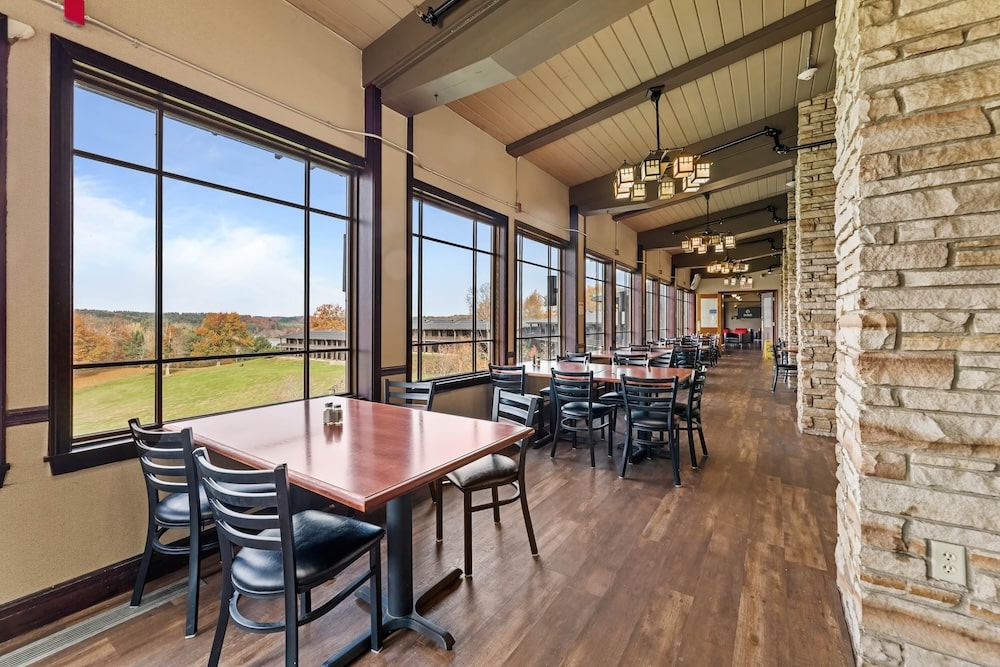For many people struggling with addiction, there comes a pivotal moment when they recognize they need help. This realization often leads to an important question: “Do I need professional rehab treatment, or can I recover by simply attending support group meetings?”
This question deserves careful consideration, as the answer can significantly impact your recovery journey. While support groups like Alcoholics Anonymous (AA) and Narcotics Anonymous (NA) provide valuable community and guidance, they may not offer enough support for everyone, particularly those with severe addiction or co-occurring disorders.
Professional Treatment vs. Support Groups: Understanding the Differences
Support groups and professional rehabilitation programs serve different purposes in the recovery process, though they can work together effectively.
Support Groups
Support groups such as AA, NA, and SMART Recovery offer:
- Peer support from others who understand addiction firsthand
- A structured approach to maintaining sobriety
- Sponsorship opportunities for one-on-one guidance
- Regular meetings that can fit around work and family commitments
- No financial cost to participate
- Ongoing support that can last a lifetime
While these benefits are substantial, support groups typically lack:
- Medical supervision during detoxification
- Professional therapy for underlying mental health issues
- Structured treatment for co-occurring disorders
- Personalized treatment plans based on individual needs
- Intensive daily therapeutic interventions
Professional Rehabilitation
Conversely, professional treatment programs like those offered at The Bluffs provide:
- Medically supervised detoxification to manage withdrawal safely
- Assessment and treatment of co-occurring mental health disorders
- Individual therapy with trained addiction counselors
- Group therapy facilitated by licensed professionals
- Family therapy to rebuild damaged relationships
- Life skills training and relapse prevention education
- Structured environment removing access to substances
- Nutritional support and physical health restoration

Why Meetings Alone May Not Be Enough
While support groups offer valuable community support, they may be insufficient for many people in early recovery for several reasons:
The Challenge of Physical Dependence
Physical dependence on substances like alcohol, opioids, or benzodiazepines can create dangerous, even life-threatening withdrawal symptoms. Support groups aren’t equipped to manage these medical emergencies, which may include:
- Seizures
- Delirium tremens (in alcohol withdrawal)
- Severe vomiting and dehydration
- Extreme blood pressure fluctuations
- Suicidal thoughts or behaviors
Addressing Underlying Issues
Many people with substance use disorders have underlying mental health conditions that contribute to their addiction. Professional treatment addresses these co-occurring disorders, which might include:
- Depression
- Anxiety disorders
- Post-traumatic stress disorder
- Bipolar disorder
- Personality disorders
Support groups, while beneficial, aren’t designed to treat these complex conditions that often drive addictive behaviors.
Learning Recovery Skills
Early recovery requires developing new coping mechanisms and life skills. Professional rehabilitation provides structured training in:
- Identifying and managing triggers
- Developing healthy stress management techniques
- Improving communication skills
- Building healthy relationships
- Creating structured daily routines
- Managing difficult emotions without substances
The Dangers of Quitting Cold Turkey
Attempting to quit certain substances without medical supervision can be dangerous and potentially fatal. This is particularly true for:
- Alcohol: Withdrawal can progress to delirium tremens, which has a mortality rate of up to 4% without treatment
- Benzodiazepines: Withdrawal can cause seizures and psychosis
- Opioids: While rarely fatal, withdrawal can be extremely uncomfortable and lead to relapse
Medical detoxification provides medications and support to manage these symptoms safely, significantly reducing the risk of complications and increasing the chances of successful initial recovery.
Meetings and Treatment: Complementary Approaches
Rather than viewing support groups and professional treatment as an either/or choice, consider them complementary components of a comprehensive recovery plan.
Many successful recovery journeys include:
- Professional treatment for safe detoxification and initial stabilization
- Residential or intensive outpatient treatment to address underlying issues
- Transitioning to less intensive outpatient treatment while beginning to attend support groups
- Continuing with support groups for long-term maintenance of recovery
This combined approach leverages the strengths of both professional treatment and peer support systems.
Recovery Support Options Available
The recovery journey isn’t limited to just inpatient rehab and 12-step meetings. A spectrum of care options exists:
Professional Treatment Options
- Medical detoxification: Supervised withdrawal management, typically 3-10 days
- Residential/inpatient rehabilitation: 24/7 care in a structured environment, typically 28-90 days
- Partial hospitalization programs (PHP): Daytime treatment with evenings at home, typically 5-7 days per week
- Intensive outpatient programs (IOP): Several hours of treatment 3-5 days per week
- Outpatient therapy: Individual or group sessions 1-2 times per week
- Medication-assisted treatment (MAT): Using medications like buprenorphine or naltrexone alongside counseling
Support Group Options
- 12-Step programs: AA, NA, Cocaine Anonymous, etc.
- SMART Recovery: Science-based, self-empowerment approach
The Importance of Medical Supervision in Recovery
Medical supervision is critical during the early stages of recovery for several reasons:
Safe Withdrawal Management
Medical professionals can prescribe medications to ease withdrawal symptoms and prevent dangerous complications. This might include:
- Benzodiazepines for alcohol withdrawal
- Buprenorphine or methadone for opioid withdrawal
- Anticonvulsants to prevent seizures
- Antihypertensives to manage blood pressure
Addressing Physical Health Issues
Addiction often leads to neglected physical health. Medical supervision can address:
- Nutritional deficiencies
- Liver function issues
- Cardiovascular problems
- Infectious diseases like hepatitis or HIV
- Sleep disorders
- Chronic pain conditions
Medication Management
For those with co-occurring mental health disorders, proper medication management by psychiatrists can be essential for recovery.
How to Know Which Level of Care You Need
Determining the appropriate level of care depends on several factors:
Assessment Factors
- Severity and duration of substance use
- Previous treatment attempts
- Co-occurring mental health conditions
- Physical health status
- Social support system
- Home environment stability
- Motivation and readiness for change
Professional Assessment
The most reliable way to determine appropriate care is through a professional assessment by addiction specialists. At The Bluffs, our assessment process evaluates:
- Substance use history and patterns
- Withdrawal risk
- Physical health status
- Mental health screening
- Family and social support
- Recovery resources
- Personal recovery goals
Based on this comprehensive assessment, our team recommends the level of care that offers the best chance for successful recovery.
How The Bluffs Integrates Support Groups with Professional Treatment
At The Bluffs, we recognize the value of both professional treatment and peer support. Our programs integrate elements of both approaches:
During Treatment
- Introduction to 12-step concepts and other support group philosophies
- On-site support group meetings
- Education about the role of continuing care in recovery
- Exploration of different support group options to find the best fit
- Practice with sharing and participating in group settings
Transition Planning
- Connections to local support groups prior to discharge
- Assistance finding a sponsor where appropriate
- Development of a continuing care plan that includes support group participation
- Family education about the importance of ongoing support
This integrated approach helps patients develop the skills needed to participate effectively in support groups while receiving the intensive professional care needed in early recovery.
Making Your Decision
When deciding between professional treatment and support groups alone, consider these questions:
- Do you have physical dependence requiring medical detoxification?
- Do you have co-occurring mental health conditions?
- Have you tried meetings alone before without success?
- Is your home environment supportive of recovery?
- Do you have medical complications from your substance use?
- Have you relapsed multiple times despite support group attendance?
If you answered “yes” to any of these questions, professional treatment may be necessary for your recovery journey.
Taking the Next Step
Recovery is a personal journey, and the right path varies for each individual. For many, the most effective approach combines professional treatment with ongoing support group participation.
At The Bluffs, we’re committed to helping you find the right level of care for your unique situation. Our experienced admissions team can help you understand your options and make an informed decision about your recovery journey.
Don’t wait another day to begin your path to recovery. Call us today to speak with a compassionate admissions coordinator who can help you determine the best next steps for your situation.








